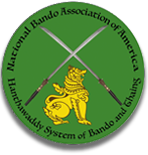U Ba Than Gyi began to see that once these foundational principles could be discerned, articulated and removed from needlessly mythic contexts, a hierarchy of principles, strategies, tactics and techniques could be constructed. This would provide, he reasoned, a coherent, comprehensive, and consistent approach to martial disciplines across virtually all stylistic lines. The Elder Gyi established this structure. He organized, sifted, and classified his tremendous wealth of knowledge gained from hundreds of masters over many years.
In U Ba Than Gyi’s approach, a set of combative behaviors was termed as a system. The system dealt with offense, defense, counter-offence and the like. The system consistently utilized the pervasive and sound underlying principles Dr. Gyi’s father had discovered to formulate reasoned responses within a chosen context. For example, this meant that a large and heavy man chose Bull or Python. U Ba Than Gyi removed other indigenous components of the behaviors which he felt were not necessary to understanding and manifesting the underlying principles. An example of these “removed” components could be beliefs in numerology, astrology and various superstitions. Instead of creating a new mythology, the Elder Gyi took what we might recognize as a very Western and scholarly approach. He utilized the animal systems he constructed as a composite framework for particular strategic thoughts, tactical decisions and physiological weapon selection. But why did he choose animal systems to be the expository mechanism for his unique synthesis of fundamental cross-style principles? Why not a geranium style?
The answer remains rooted in myth shared cross-culturally down to the present day in numerous cultures, and across racial/ethnic boundaries. For example, there is the powerful German Eagle (and the American Eagle), the Russian Bear. Further, family crests in Europe feature animals of certain types as symbols for the family unit.
Dr. Gyi explains that we can only conclude, therefore, that a fundamental and powerful part of the human psyche is clearly fascinated with and identifies with animals. U Ba Than Gyi chose the animal systems as unique repositories of the various principles for a wide variety of reasons, not the least of which was a three-fold analysis of why martial artists had instinctively imitated animals historically. First, there seemed to be a mystical attachment to certain animals along historic and cultural lines which increased the likelihood of students undertaking rigorous training to master the system. Second, we are humans feel awe for these animals and the grace of their motions. Thirdly, we feel that by acting as an animal, we escape from ourselves and in turn liberate ourselves from societal strictures of behavior and response. We liberate our instinctive levels of personal physical capabilities, what other systems may attribute to chi or ki.


